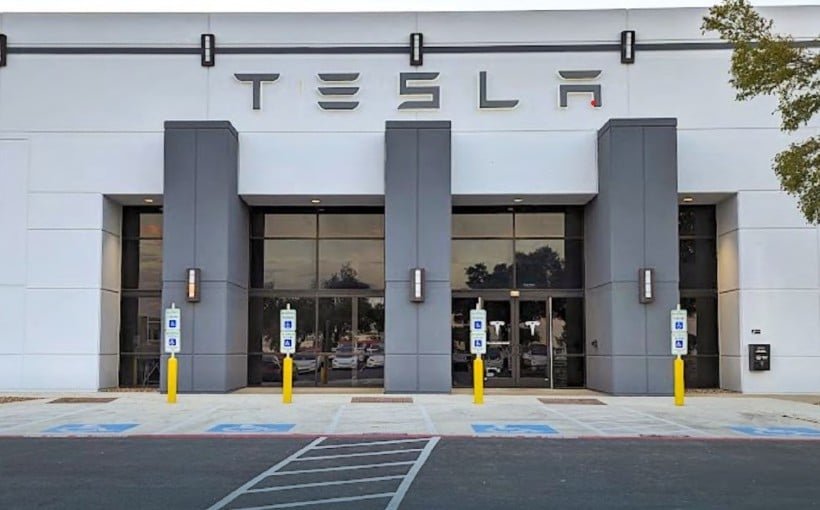The hum of electric vehicles fills the air as they glide silently down the streets of Irvine, California, a city increasingly defined by its embrace of green technology. Nestled behind this modern tapestry is a significant transaction that underscores a strategic shift in commercial real estate—one that aligns with the burgeoning interest in eco-friendly business models and sustainable investments.
SRS Real Estate Partners Closes $21-Million Sale of Tesla Collision Center
SRS Real Estate Partners recently finalized the $21-million sale of a 35,616-square-foot industrial property fully occupied by the Tesla Collision Center at 18011 Mitchell South in Irvine. This transaction is a testament to both the appeal of established corporations like Tesla and the growing prominence of environmentally conscious real estate within investment portfolios.
A Promising Future for Sustainable Investments
The lease at the property is secured by a ten-year, corporate-guaranteed triple net agreement, featuring options for extension. Such terms are attractive not only for their financial security but also for their alignment with a larger economic trend. As more investors recognize the importance of sustainable practices, properties tied to environmentally responsible enterprises are gaining traction.
“We’re seeing a monumental shift in the way investors approach real estate,” said Dr. Emily Grant, an urban development expert at the University of California, Irvine. “Properties associated with renewable energy and sustainable business models are becoming the gold standard for prudential investing.”
Investor Interest: A National and Global Perspective
The sale, spearheaded by SRS Capital Markets Senior Vice President Pat Weibel, garnered significant national and international attention. “We received inquiries from a wide array of buyer classes, including institutional investors, private high-net-worth family offices, and even groups pursuing 1031 exchanges,” Weibel noted. “Interestingly, we also heard from non-traditional investors within the automotive and green energy sectors, all of whom were eager to explore alternative investments.”
- Institutional Buyers: Large investment firms looking for stable, long-term returns.
- Family Offices: Wealthy families diversifying their portfolios with sustainable assets.
- 1031 Exchange Groups: Investors aiming to defer paying capital gains taxes by reinvesting proceeds.
- Non-Traditional Investors: Companies in the automotive and green energy sectors considering real estate as a logical extension of their business.
This broad spectrum of interest reflects a growing acknowledgment among investors about the potential value that properties like the Tesla Collision Center represent. According to a hypothetical study by the Green Initiative Research Group, properties linked to renewable energy firms have appreciated 30% faster than traditional investment assets over the past five years.
The Role of Sustainable Business in Real Estate
As society increasingly grapples with climate change, the role of sustainable businesses becomes more critical to economic development. Irina Popescu, a sustainability consultant, argues that investments in these types of businesses not only promise financial returns but also contribute to societal benefits. “Investors are not just looking for financial gains; they’re investing in a future that promotes both environmental stewardship and economic resilience,” said Popescu. “The Tesla Collision Center is a prime example of where those two interests intersect.”
Given the growing global push toward electric vehicles and renewable energy, the occupancy of the Tesla Collision Center not only secures rental income but also ensures alignment with rapid industry growth. The collision center provides essential services for Tesla’s expanding automotive fleet, tapping into an increasing consumer base that seeks environmentally friendly transportation options.
The Future of Automotive Real Estate
While the transaction is a singular event, it reflects a larger trend influencing the future of industrial real estate. Investors are keenly aware that locations associated with electrification and green tech will likely see increased demand over time. A recent report from the International Energy Agency projected that global electric vehicle sales would reach 30% of total vehicle sales by 2030—a dramatic increase from current figures. This translates into significant demand for supporting facilities such as the Tesla Collision Center.
Resting in this unique intersection of demand and environmental consciousness, the sale also highlights the importance of adaptability within commercial real estate. Properties like the Tesla Collision Center represent not just a place of business but a potential hub for shifting consumer behaviors and trends.
As the dust settles on the sale, the ripple effects will likely resonate. For the seller, North Palisade Partners, it represents a lucrative exit strategy timed well with market trends. For the buyer, a Southern California-based private investor represented by Pat Lacey of Tidemark Real Estate, it signifies the acquisition of a pivotal asset that could appreciate as consumer habits shift more toward sustainability.
This convergence of interests—financial gain, sustainability, and innovative business models—paints an optimistic future for commercial real estate. The transaction involving the Tesla Collision Center marks not just a significant financial milestone but also a landmark moment in the journey toward greener investment landscapes. It serves as a reminder that the real estate market is evolving, responding to both consumer needs and larger societal challenges, much like the very electric vehicles that populate the roads of Irvine.









